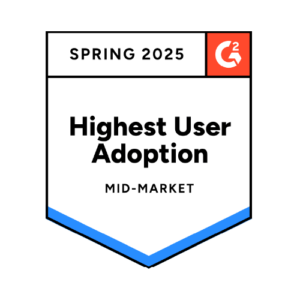


The healthcare industry struggles to protect sensitive data due to strict regulations and the vital role of technology in patient care. As a result, identity and access management (IAM) is crucial for data protection. A strong IAM solution is needed to manage access to healthcare data while ensuring compliance and enhancing patient care.





Safeguarding Sensitive Information Amidst Increasing Threats
Healthcare organizations are significantly increasing cybersecurity budgets due to rising cyberattacks. In 2023, 88% of these organizations reported incidents, with hacking-related data breaches up 239% and ransomware attacks up 278% since 2018. This year set records for the highest number of breaches and breached records, highlighting the urgent need for stronger cybersecurity measures.
Healthcare is a prime target for hackers due to the value of Protected Health Information (PHI). As attacks become more frequent, healthcare organizations must modernize their identity and access management (IAM) strategies. By implementing robust IAM practices, they can enhance defenses, protect PHI, ensure compliance, and maintain the integrity of critical systems. Prioritizing cybersecurity is essential to safeguard sensitive healthcare information.
Consumerism and Value-based Care: Driving New Expectations for Healthcare Experiences
The evolving healthcare landscape has shifted financial responsibility to patients, leading to higher out-of-pocket costs and premiums. As a result, patients are taking a more active role in their healthcare decisions, demanding greater control and personalized, value-based experiences.
To stay competitive, healthcare organizations must adapt by offering a secure, user-friendly digital care experience. This includes easy access to medical records, appointment scheduling, and telemedicine consultations.
Additionally, robust cybersecurity solutions are essential to protect patient data and maintain trust. As healthcare services become more digital, organizations must implement comprehensive measures to safeguard sensitive information and ensure privacy. Investing in advanced cybersecurity technologies is crucial for creating a secure environment for patients.
The Rise of Medical Devices and Telemedicine: Amplifying IoT Security Challenges
The rise of medical devices and telemedicine is transforming healthcare delivery, breaking down traditional IT barriers. With the growth of the Internet of Things (IoT), devices like Fitbits and smartphones are increasingly interacting with Electronic Health Records (EHR). However, this connectivity raises significant cybersecurity and access concerns.
As these devices connect to EHR systems, the risks of unauthorized access and data breaches grow. Healthcare organizations must ensure the confidentiality, integrity, and availability of patient information while facilitating secure communication among devices, EHRs, and remote users.
The remote access capabilities of telemedicine also increase cybersecurity risks. To mitigate these threats, it’s crucial to implement robust identity and access management (IAM) strategies, including strong authentication, secure remote access controls, and regular monitoring of access activities.
Implementing Multi-Factor Authentication (MFA) boosts security in user authentication without disrupting patient care or frustrating clinicians. By requiring multiple forms of identification—like a password and a verification code sent to a mobile device—MFA significantly reduces the risk of unauthorized access.
Self-service password reset and recovery options enable users to regain account access without needing help desk support. This enhances convenience for patients and healthcare professionals while reducing the burden on IT staff, allowing them to focus on more critical tasks.
Streamlining user access and simplifying workflows is crucial in healthcare settings where clinicians and staff often need to navigate multiple applications and systems. By implementing SSO capabilities, healthcare organizations can enable users to access various healthcare applications and systems using a single set of credentials.
| Cookie | Duration | Description |
|---|---|---|
| cookielawinfo-checkbox-analytics | 11 months | This cookie is set by GDPR Cookie Consent plugin. The cookie is used to store the user consent for the cookies in the category "Analytics". |
| cookielawinfo-checkbox-functional | 11 months | The cookie is set by GDPR cookie consent to record the user consent for the cookies in the category "Functional". |
| cookielawinfo-checkbox-necessary | 11 months | This cookie is set by GDPR Cookie Consent plugin. The cookies is used to store the user consent for the cookies in the category "Necessary". |
| cookielawinfo-checkbox-others | 11 months | This cookie is set by GDPR Cookie Consent plugin. The cookie is used to store the user consent for the cookies in the category "Other. |
| cookielawinfo-checkbox-performance | 11 months | This cookie is set by GDPR Cookie Consent plugin. The cookie is used to store the user consent for the cookies in the category "Performance". |
| viewed_cookie_policy | 11 months | The cookie is set by the GDPR Cookie Consent plugin and is used to store whether or not user has consented to the use of cookies. It does not store any personal data. |